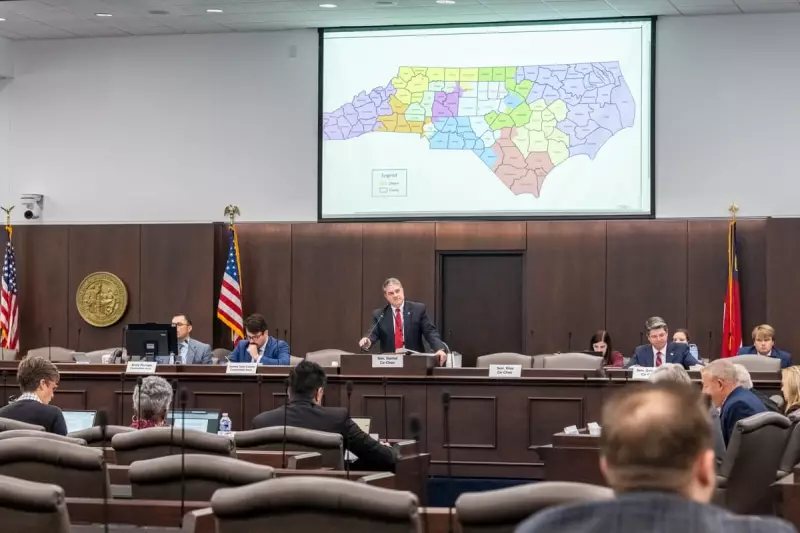
Republican legislators in North Carolina have unleashed a political earthquake, pushing through a dramatically reconfigured congressional district map that opponents decry as one of the most aggressive partisan gerrymanders in recent memory.
The New Political Landscape
The approved map creates what analysts describe as a potentially insurmountable advantage for Republicans, who could capture as many as 11 of the state's 14 congressional seats despite North Carolina's status as a closely divided political battleground.
This represents a seismic shift from the current 7-7 split between Republicans and Democrats, effectively neutralizing competitive districts and creating what voting rights advocates call "electoral apartheid" that could endure for the next decade.
Legal Challenges Mount Immediately
Even before Governor Roy Cooper could exercise his veto power - a move rendered largely symbolic by Republican supermajorities - advocacy groups were preparing legal challenges. The North Carolina chapter of the NAACP and other organisations have vowed to fight what they describe as "a blatant assault on democratic principles."
This legal battle follows a recent pattern in the state, where previous maps have been repeatedly struck down by courts for unconstitutional racial and partisan gerrymandering.
Republican Justification and Democratic Outrage
Republican leaders defend the new boundaries as legally sound and politically fair, arguing they simply reflect the state's underlying political geography where Republican voters are more efficiently distributed.
However, Democrats and voting rights advocates counter that the map represents extreme partisan manipulation, deliberately cracking Democratic voters in urban areas and packing them into as few districts as possible to minimise their statewide influence.
National Implications
The timing couldn't be more significant. With the 2024 elections approaching, North Carolina's redistricting could provide Republicans with crucial additional seats in their quest to maintain control of the US House of Representatives.
Political analysts note that the state's electoral map has become ground zero in the national battle over redistricting, testing the limits of how far political parties can go in drawing districts to secure permanent advantages.
What Comes Next?
The stage is set for another protracted legal war that could ultimately reach the Supreme Court. Meanwhile, candidates and voters must prepare for congressional elections in districts that may change yet again before election day.
This latest chapter in North Carolina's perpetual redistricting drama underscores the high-stakes nature of political mapmaking and its profound consequences for American democracy.





